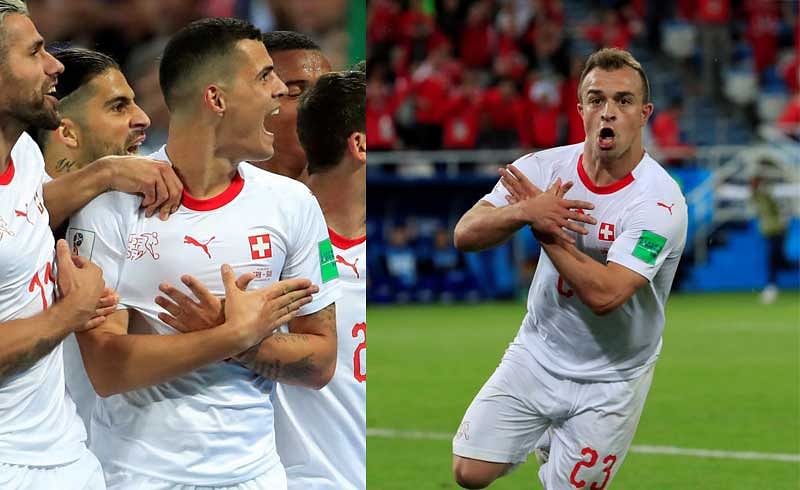
Politics in football is not new. World Cup 2018 also began with a political controversy over Argentina's refusal to play with Israel in the friendly matches.
On Friday, two of Switzerland's players triggered a new controversy. Granit Xhaka and Xherdan Shaqiri, after scoring a goal against Serbia in the Group E match in Kaliningrad, used an Albanian nationalist symbol which could have inflamed political tension in the Balkans.
Both of them made the symbolic gesture of the double-headed eagle displayed on the Albanian flag.
Kosovo, Albania and some parts of Serbia are part of the Balkan countries. They inherit the name from the Balkan mountains.
Century-long disputes among these countries had resulted in many fleeing to other European countries.
Xhaka was born in Switzerland to Albanian parents who were originally from Serbia. Shaqiri, who got a yellow card for removing the jersey to celebrate his goal, was born in the Socialist Federal Republic of Yugoslavia (this part is currently with Kosovo) to Kosovar Albanian parents.
During the Balkan Wars in 1912 and 1913, Serbia gained significant territorial areas of the Central Balkans and almost doubled its territory. During the first war, Albanians fought as a nation. But the present Albania was born only in 1991.
During 1998-99, the then Federal Republic of Yugoslavia (Serbia and Montenegro) unleashed its forces on Kosovo. The Kosovo Albanian rebel group, known as the Kosovo Liberation Army, received air support from NATO. Kosovo declared independence from Serbia in 2008 though the disputes are still not settled. The Kosovo border with Serbia on the Google map can be seen in dotted lines.
In 2014, Albanian Prime Minister Edi Rama met Serbian Prime Minister Aleksandar Vucic for the first time since 1947. Albanian Prime Minister reportedly said that Kosovo's independence was 'undeniable' during that time.
Xhzka's brother Taulant Xhaka plays for Albania. In October 2013, Taulant explained that his choice to represent Albania was influenced by his younger brother Granit.